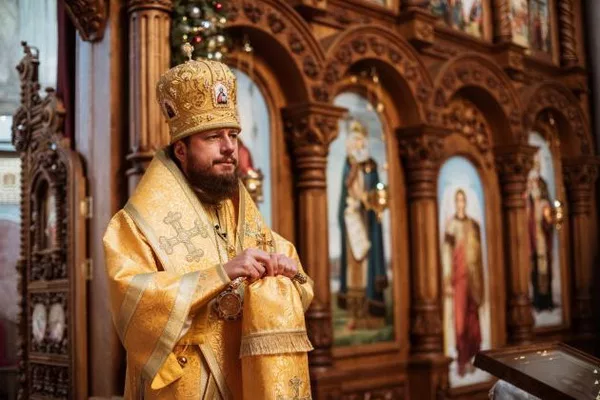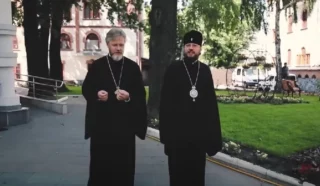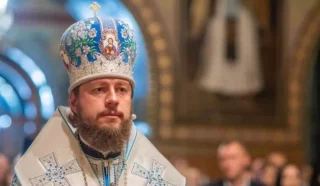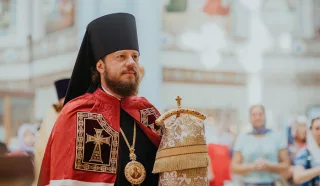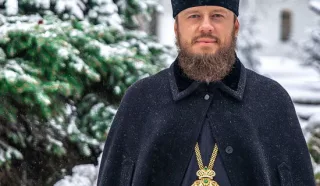The desire of the authorities to discriminate and ban the activities of the Ukrainian Orthodox Church does not contribute to the unity of the citizens of Ukraine and causes irreparable harm to the state, Pravlife writes. This was stated by Archbishop Viktor of Baryshivka in the article “The unity of the people of Ukraine: how will we pay if we lose it?”
“Most recently we celebrated the Day of Unity. Congratulating the Ukrainians on this holiday, our President warned that if we do not achieve true unity, then independence will be lost. Let’s ask ourselves a simple question: will the ban on activities and further destruction of the Ukrainian Orthodox Church contribute to the unity of Ukrainians or their separation?!” suggested Archbishop Victor.
If this happens, the bishop believes, millions of believers of the UOC will perceive this as a cruel, unfair reprisal of one part of Ukrainians over another. Information about the restriction of religious freedom in Ukraine will also negatively affect the country’s foreign image.
In this regard, the bishop called an “alarm bell” the call to the Romanian-speaking parishes of the Ukrainian Orthodox Church (there are about 120 of them in Ukraine) to join the Romanian Patriarchate. It was distributed by several public and political organizations in Romania at the end of January. Recently, the Romanian deputy Dumitru-Viorel Focsa visited Ukraine: he held a series of meetings with the priests of the UOC, recorded several anonymous interviews with them, and then declared that discriminatory actions against the UOC are “complete madness.”
Focsa said the priests were “very scared” and “need protection.” Here is his direct speech: “Romanian priests are being terrorized and forced to enter a new political church, leaving the autonomous canonical Church of Ukraine.” However, according to the same deputy, they are loyal to their Primate and do not want to transfer to the Romanian Church,” said Archbishop Victor.
But what will happen if the Ukrainian Orthodox Church is still banned, and the authorities leave the priests only one choice: join the ranks of the schismatic “OCU” or the catacombs?
“It is possible that in this case, many Romanian-speaking priests and believers from Bukovina, who now feel quite organically within the Ukrainian Orthodox Church, will nevertheless agree to consider the proposal from neighboring Romania. And indeed, it will be difficult to blame them for this, because the Church of Christ is one in the whole world, It is not limited by state borders or national interests,” Archbishop Viktor explained.
In this state of affairs, the bishop continued, for many internal and external observers “it will become clear that it is precisely because of discrimination and harassment that Ukrainian priests of Romanian origin, together with their flock, are forced to seek protection abroad.”
“And it is unlikely that everything will end only with the “Romanian issue”. Let’s remember the historical ties of Transcarpathia with the Serbian Church, and Galicia and the Carpathians with the Polish Church. What will happen if a similar situation develops in these regions? What will they say about Ukraine outside of it then? What will be written about the persecution of Ukrainians because of their “wrong” religion?” – Archbishop Victor suggested thinking.
He also drew attention to the statement of the People’s Deputy of Ukraine Volodymyr Vyatrovich (Eurosolidarity) that everyone who does not accept the OCU will have to leave the country or answer according to the law. Such a statement is based on the bill of Nikolai Knyazhitsky, according to which only those who will belong to the “OCU” will be able to call themselves Orthodox.
“If such efforts (on a legislative ban on the UOC – ed.) take on a completed form, then it seems that a large number of lawsuits for the protection of civil rights and freedoms of religion will go to Ukrainian and then European courts,” Archbishop Viktor noted.
He recalled the words of Christ the Savior that “every kingdom divided against itself will become empty; and every city or house divided against itself shall not stand” (Matthew 12:25).
“Religious conflicts are wounds that never fully heal. And a state that inflicts such wounds on its own can never truly be either conciliar or united,” Archbishop Viktor concluded.
